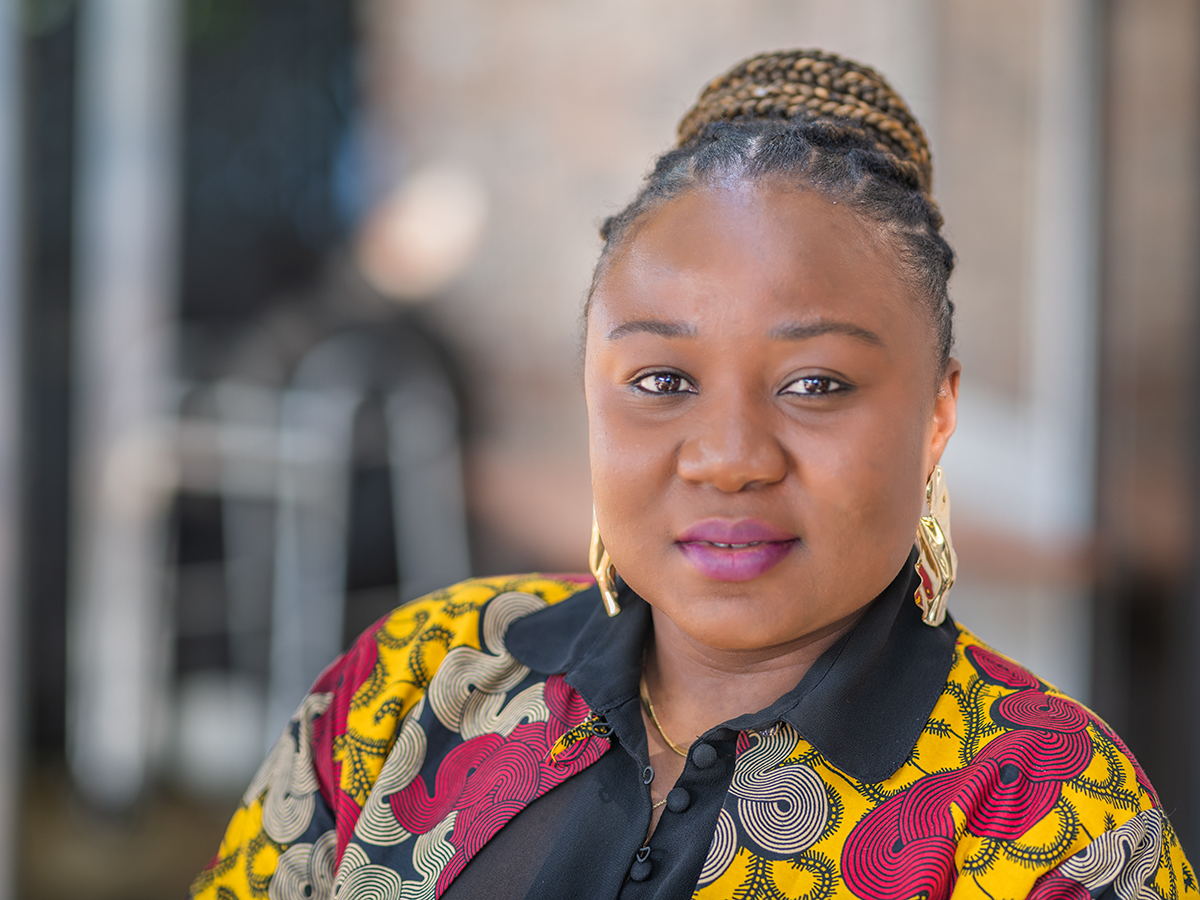For Abiba Magba Magba, running a business was a means of survival.
Her mother taught her this while Magba was growing up in Bangui, the capital of the Central African Republic (CAR). When Magba was born in Bangui in 1994, the CAR was rife with political turmoil. She was just an infant when her father fled to Congo to avoid being killed for his political connections. Her mother asked Magba to help her support themselves by helping her make makara, a staple Central African bread made with flour, to sell at the market.
“I was helping my mom, but eating the sugar most of the time,” says Magba. “We have a vanilla sugar that she made (makara) with, and I kept eating that sugar to the point that my teeth went so bad that they had to take out some of my teeth … If that counts as helping.”
Learning from working with her mother, Magba began her own small business while only 8, picking tamarind from the trees near her home. She then hand-ground them into a paste she mixed with sugar and salt to sell to schoolmates.
“Everyone else in the neighborhood was doing that, and I just got the idea to take it to school,” she says. “As I grew up, I always created some kind of business to do.”
Magba was one of the few children in her neighborhood who attended school. The neighborhood was poor, and besides enjoying playing soccer with friends, she grappled with the responsibility of taking care of her seven sisters and dealing with an abusive stepdad.
“Whenever I was outside of the house, I was very happy,” she says. “But as soon as I came home, I felt like I had a heavy burden on my shoulders … I felt like an outsider in my own home.”
When she was 13, her stepdad and mom moved to Congo. She lived with multiple different family members over time and continued her studies despite the turmoil.
During her years as a student, she continued to support herself through her own small business ventures. She revived her mother’s makara recipe with a few tweaks and sold the bread at school. She also sold grilled charcoal that she had to travel 50 kilometers, one way, to collect.
“That’s pretty much what I survived on,” she says.
Magba says she was convinced that a good education would open many doors for her in the future.
“I had this dream that I wanted to be a successful business woman,” she says. “I needed education, I needed knowledge to be able to run my own business.”
Magba graduated from high school in the midst of the Central African Republic Civil war–which began in 2012 and continues in 2024. Fearful for her life in the conflict, she decided to flee her home country and went to Mauritania, where her family was living.
In Mauritania, she moved back in with her mother and stepdad, but faced the same abuse she endured as a child. She left the house after her mother tried to offer her hand in marriage. Magba wanted to continue her education, rather than being tied down as a wife with many kids similar to her mother’s fate.
Instead, Magba registered at the United Nations High Commissioner for Refugees and attended a French school.
She made money from multiple side hustles, including enlisting a friend who owned an internet café to sell a hibiscus drink and small “coquette” cookies Magba made.
In 2016, the UNHCR gave Magba less than a day’s notice that she’d be going to America.
She touched down in the U.S. speaking fluent French, Sango and Chadian Arabic, but knowing no English.
At the airport, Kate Yeiser, a volunteer with Catholic Charities of Oregon, introduced herself in French and told Magba she’d be hosting her while they searched for a place for her to live.
After she was settled, Magba was connected with the Immigrant and Refugee Community Organization and began taking English classes there and at Portland Community College.
She went on to work as a Sango to English interpreter for IRCO in 2017. She now is a job program coordinator for IRCO, supervising and assisting working refugees. She recently earned her associate degree from PCC.
At 29, Magba continues to feel responsible for the financial stability of her family back home. She insists that her five younger sisters who are still school-aged attend private school, sending her mother money each month for their tuition.
“I don’t want my younger sisters to go through the same thing I went through,” she says. “I want them to go to school, I want them to have the choice when it comes to marriage. I want them to explore life.”
She still engages in side hustles, conducting a hairstyling business and selling hair extensions.
As for Yeiser, Magba is forever grateful for her financial support, which included helping Magba buy a house in 2020 by co-signing a loan and assisting in purchasing her a car. But, Magba says, their relationship transcends money.
“We have become family, she has become my mom,” she says.
Magba says her recent visit to the Central African Republic reminded her of how far she has come from the girl she was growing up.
“I did not have anything,” she says. “I am someone who never gave up.”

